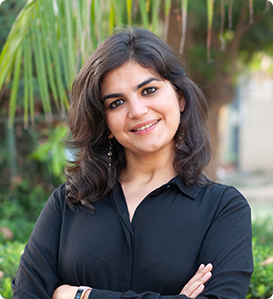
DEPRESSION IS WORSE THAN “I’M HAVING A BAD DAY”!

Sadness, despair, grief, and loneliness are all perfectly normal human emotions that we experience at some point in our lives. Depression, on the other hand, is a mental illness with persisting sadness as only one part of it. Because we associate depression with its primary symptom of pervasive sadness, many of us struggle to tell the difference between these two common psychological states.
This is a huge problem!
Our confusion can lead us to neglect a serious condition that requires treatment (depression) or, on the other end of the spectrum, overreacts to a normative emotional state (sadness). Not only is depression far more complex and pervasive than sadness, but it is also much more difficult to diagnose. Depression can dramatically impact a person’s life in a negative way, compromising their work performance, interpersonal relationships, social skills, mental stability, physical health and so on. Described below are some ways that will help you differentiate between sadness and depression.
Symptoms of Depression
- Triggers: Feelings of sadness and accompanying symptoms of fatigue, suppressed appetite and loneliness are often triggered by hurtful, disappointing or difficult experiences. This could include emotional events such as parting with a loved one or death, an environmental trigger such as moving to a new place. Sadness is usually the consequence of a situation that can be pinpointed to an apparent cause or several contributing factors, allowing one to work through loss or disappointment before starting to feel better. On the other hand, depression is a condition that permeates thoughts, emotions, behaviours, and sensitivities about everything and often cannot be traced back to one specific trigger. Severe feelings of sadness and anxiety without any specific trigger often indicate the more pressing condition of depression.
- Low mood: During a sad day or week your mood changes. Your mind might be preoccupied and you can find yourself falling back to sad thoughts. However, you can still go about your day normally. When you are clinically depressed however, your daily life has become difficult to endure.
- Changes in appetite and weight: Depression severely impacts a healthy appetite hence significant weight change paired with a complete loss of appetite – even for comfort foods – is a sign of depression that should not be ignored. Changes in body weight, both in losing and gaining weight, during periods of sadness certainly are not unusual. However, disrupted eating routines and resulting weight change will often encourage those in times of sadness to get back to a healthy routine with regular eating and exercise. This is not the case for those suffering from depression.
- Sleeping too much or not enough: Feelings of grief and unhappiness might cause restlessness and keep you up at night for a while but once the period of mourning, intense sadness or emotional disruption has passed you should be able to get to sleep and function normally. On the other hand, depression often is accompanied by severe disturbance of regular sleeping patterns to such an extent that your physical body is being harmed. This includes insomnia for several days, not being able to get out of bed in the morning or even alternating between these states for long periods of time. Fatigue, headaches and muscle aches often occur as a result of these disrupted sleeping patterns.
- Loss of pleasure in activities: With sadness, activities that you usually enjoy such as watching series or eating comfort food will still be a good distraction that improves your mood. Similarly, a phone call from a friend or a coffee date might help you overcome the sadness and loneliness that you are experiencing, and slowly but surely you will begin to enjoy things again. However, in depression, anhedonia which is described as a complete loss of interest in activities that you once found enjoyable along with the inability to sustain feelings of pleasure derived from such activities, is a major red flag. So if you are suffering from prolonged periods of withdrawal from pleasurable activities such as food, work, sex, and social interaction, be sure to seek professional help.
- Lack of focus and Chronic Fatigue: Poor concentration and loss of focus in times of sadness mostly occur due to a preoccupation with other thoughts, especially those connected with the cause of sadness such as the triggers mentioned above. Depression affects concentration through a lack of thoughts, slow thinking and an inability to make decisions of all magnitudes – even seemingly unimportant decisions that require minimal thought. Depression is a culprit of hampering your ability to think and move while sadness will mostly affect your desire to function as normal – and only on a temporary basis.
- Thoughts of suicide or self-harm: A tendency to have suicidal thoughts and a desire to no longer life are not driven by sadness. Recurrent suicidal thoughts are a serious warning sign of clinical depression that calls for an immediate intervention! Disclosing these thoughts to someone trustworthy and admitting a need for help is a sign of bravery, not weakness.
In conclusion, sadness and depression are mistakenly used as interchangeable terms for feelings of despair, loneliness and general unhappiness. It is important to assess the above differences and realise that depression is a serious illness that needs to be treated appropriately.
By

Dr. Priyamvada Dua
(Consultant)
Dr. Priyamvada Dua
Consultant- Mindfulness Based Cognitive Therapy
Dr. Dua pursued her entire higher education in the United Kingdom. After obtaining her Masters degree in Neurosciences from Imperial College London she did her PhD in Neuropsychiatry from BARTS and the London School of Medicine and Dentistry. She has worked extensively on an autoimmune model of movement disorders and psychiatric conditions like OCD, Depression, ADHD and Autism as part of European Multicentre Tics in Children Studies (EMTICS). She has been trained in a range of psychotherpaies like cognitive behavioural therapy, Gestalt and Emotion-Focussed Therapy.
Dr. Dua has been honored with numerous awards and rnethods, Professor Mary Robertson Award for research contribution in Tourette’s Syndrome, Honorary Consultancy at Microbiology, Virology and Infection Control Laboratory, Great Ormond Street Hospital for Children, London.
After her extensive research experience Dr. Dua followed her passion and came to India to explore the role of art, spirituality and other creative mediums as alternative therapies for neurological and psychiatric disorders. Her vision was to amalgamate Western education with Eastern spiritual practices. She got trained in hypnotherapy, mindfulness practices, sound healing, Reiki, yoga science and numerous other complimentary methodologies. Her expertise now lies in providing cognitive therapies coupled with mindfulness and other holistic practices for treatment of anxiety, depression,addictions, phobias and mind-body illnesses.
Copyright © 2021, Metabalance Healthcare All Rights Reserved. Designed by: Webcare Technologies
 Call Now
Call Now
 info@metabalancehealthcare.com
info@metabalancehealthcare.com
